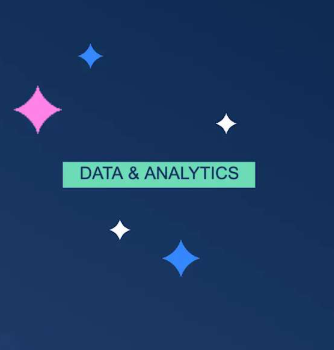
Data science is becoming an essential field for businesses across industries as they seek to leverage data for better decision-making. From healthcare to finance, organizations are using data-driven insights to optimize their operations, predict trends, and solve critical problems. In healthcare, for instance, hospitals analyze patient wait times and employee efficiency to improve scheduling, while financial institutions use data science to detect fraud and assess financial health. These practices enable businesses to uncover hidden patterns, enhance decision-making, and drive growth.
The demand for data scientists has surged, with the U.S. Bureau of Labor Statistics forecasting a 35% increase in employment within the field between 2022 and 2032. This growth comes with lucrative compensation, with the median salary for data scientists standing at $108,020, and top professionals earning over $184,000 annually.
If you’re considering a career in data science, you might be wondering what it entails and how you can progress in this dynamic field. Here’s an overview that breaks down the core concepts, tools, and strategies to help you thrive in data science.
What Exactly is Data Science?
At its core, data science is an interdisciplinary field that integrates statistics, computer science, programming, and domain knowledge to collect, process, and analyze data. The goal is to extract valuable insights that can solve problems and inform business strategies.
Data scientists are experts at identifying hidden patterns within data, which can be used to make data-driven decisions. For instance, a retailer may analyze customer shopping behavior and social media trends to forecast seasonal demand and develop products that appeal to their audience. This type of predictive analysis allows businesses to stay ahead of market trends and adapt to changing consumer preferences.
The roots of data science trace back to the 1960s and 1970s, when computer scientists developed algorithms to process data. In the 1980s, advancements in technology made it possible to work with “big data,” or large, complex datasets that grow exponentially. Today, data science has become a key player in driving business success. A study by Harvard Business Review for Google Cloud highlights how data-driven companies tend to outperform their competitors in areas such as revenue, operational efficiency, customer loyalty, and employee satisfaction.
The Role of a Data Scientist
Data scientists are responsible for collecting, processing, and analyzing data to answer key business questions. Their duties vary but typically include:
- Selecting relevant data sources, such as customer reviews or financial records
- Gathering raw data through surveys, web scraping, or other tools
- Organizing data into structured formats for easier analysis
- Developing machine learning algorithms to analyze and process data
- Using statistical methods to interpret large datasets, both structured and unstructured
- Building predictive models to forecast trends and outcomes
- Visualizing data in charts and graphs to communicate findings effectively
- Presenting insights to stakeholders to support decision-making
Key Concepts in Data Science
Data science involves several essential steps that help guide the analysis process. These steps, often referred to as the “data science lifecycle,” include:
- Problem Definition: Clearly identifying the business problem or question to be addressed.
- Data Collection: Gathering data from primary or secondary sources, such as databases or focus groups.
- Data Validation: Ensuring the data is accurate, reliable, and relevant to the analysis.
- Data Cleaning: Identifying and correcting errors or inconsistencies in the data.
- Data Analysis: Using statistical tools and software to uncover insights and trends.
- Visualization: Presenting data in visual formats like graphs or charts to highlight key findings.
- Interpretation: Analyzing the results to determine if they answer the initial question or open up new avenues for exploration.
- Reporting: Summarizing the analysis and presenting it to stakeholders in a comprehensive report.
Data scientists also work with advanced technologies like artificial intelligence (AI) and machine learning. These tools allow them to automate data processing and uncover insights more efficiently.
Essential Tools for Data Science
Data scientists rely on various tools and technologies to handle vast amounts of data and draw meaningful conclusions. A strong foundation in programming is essential, and many data scientists use languages such as:
- Python: Widely used for analyzing data and developing machine learning models.
- R: A powerful tool for performing complex statistical analysis and visualizing data.
- SQL: A language for managing and manipulating structured data in databases.
In addition to programming, data visualization tools like Tableau and Microsoft Power BI are commonly used to create interactive dashboards and visual representations of data.
Deepening Knowledge with Advanced Topics
For more advanced data science applications, professionals often explore deep learning techniques to work with unstructured data such as images and videos. Deep learning uses neural networks that mimic the human brain, allowing data scientists to detect complex patterns and gain more nuanced insights.
Ethical considerations are also crucial in data science. Data scientists must adhere to best practices, such as anonymizing data to protect privacy and ensuring informed consent when collecting information.
Data Science Across Industries
The versatility of data science makes it applicable across numerous industries. For example:
- Healthcare organizations use data science to predict disease outbreaks and monitor drug safety.
- Financial institutions rely on data analysis to manage risk and personalize investment portfolios.
- Marketing companies leverage data to understand consumer behavior and improve advertising strategies.
- Retailers use predictive analytics to forecast sales, optimize inventory, and enhance customer experiences.
Advancing Your Career in Data Science
As the field of data science evolves, it’s important to stay proactive in advancing your career. Here are several strategies to help you grow professionally:
- Networking: Build relationships with other data professionals through online forums, industry events, and professional organizations. Networking can help you stay updated on industry trends and discover new career opportunities.
- Mentorship: Seek out mentors who can provide guidance and feedback. A mentor can help you navigate the complexities of the industry and offer advice on improving your skills.
- Building a Portfolio: A strong portfolio showcasing personal projects, internships, or contributions to data science competitions can help demonstrate your practical experience and abilities to potential employers.
- Certifications and Education: Earning certifications or pursuing a master’s degree in data science can significantly enhance your credibility and career prospects. Certifications provide specialized knowledge in areas like programming, machine learning, and data visualization. A master’s degree offers comprehensive training, preparing you for leadership roles and complex data challenges.
By continuously developing your skills and gaining hands-on experience, you can position yourself as a valuable asset in the growing field of data science.
Conclusion
Data science offers vast career opportunities for professionals looking to solve real-world problems using data. By understanding the key concepts, tools, and career advancement strategies, you can build a rewarding career in this rapidly growing field.












